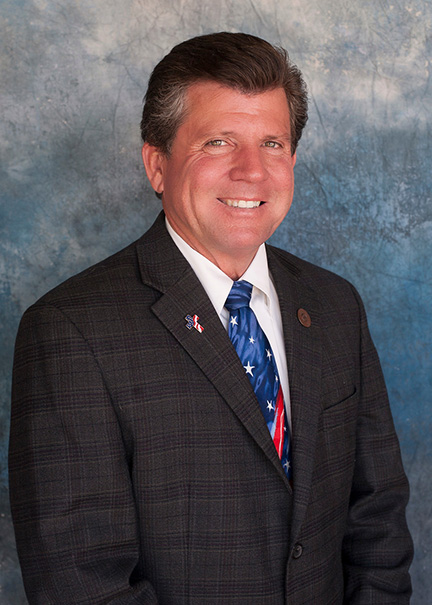The last time Western Growers (WG) spoke with Rep. Tim Dunn, he was completing his first full year as a member of Arizona’s House of Representatives and just beginning to tackle some of his constituents’ most pressing issues. Recently, WG had the opportunity to reconnect with Dunn to speak about the outcome of his efforts from our last conversation, along with his current legislative priorities.
During our last conversation, Dunn was in the middle of working on the Lower Basin Drought Contingency Plan (DCP), a much-needed multi-state water agreement to help stabilize the Colorado River system until a new set of operating procedures are drafted. This legislation was a significant issue for the Colorado River Compact—an agreement among the states of Arizona, California, Colorado, Nevada, New Mexico, Utah, and Wyoming.
“The Drought Contingency Plan was a bipartisan bill that was passed, and we worked extremely hard on getting that done,” Rep. Dunn stated.
In Yuma, AZ, where Dunn was born and is the main city in Arizona’s 13th district, there is extreme importance in protecting the “Law of the River.” The Law of the River is a compilation of compacts, federal laws, court decisions and decrees, contracts, and regulatory guidelines that manage the Colorado River.
“There is continuous pressure to transfer water and water rights off of the river to central Arizona. Once you start putting water up for bid, you create a major disruption in the economies of those river cities,” said Dunn.
Dunn also worked zealously on AZ HB2275, a House bill that clarifies an existing tax exemption, ensuring the fairness and consistency of ag taxes. Arizona was one of two states actively taxed on fertilizer and HB2275 was designed to alleviate this disadvantage. Rep. Dunn, in collaboration with several of his colleagues, introduced a bill to get a tax exemption on fertilizer and chemicals. Something not explicitly detailed in the statute was his efforts in modifying the bill from “Transaction Privilege Tax Exemption; Crop Production Tools” to “Transaction Privilege Tax Exemption; Propagative Materials,” ensuring essential agricultural inputs are exempt from sales tax. The provisions also include an extensive list of propagative materials that are exempt from TPT and use taxes. “This was a huge win for Arizona farmers, in keeping the cost of production in line with growers in neighboring states,” he exclaimed.
According to Rep. Dunn, before the spread of COVID-19, Arizona’s economy was robust and had a $1 billion surplus. Now, the focus is on dealing with the shrinking state budget, opening schools and businesses safely, and getting the economy moving. As an agriculture business owner, Dunn recognizes the importance of having foodservice in the marketplace.
He strives to be a champion for rural Arizona and the agriculture industry. As current chairman of the House Land and Agriculture committee, Dunn is steadily addressing the concerns of rural Arizona at the Capitol. One of his legislative highlights is collaborating with the Department of Agriculture (FDA) during an outbreak of E. coli O157:H7. He communicated directly with the FDA and the WG Board of Directors to devise a plan to remedy the romaine issue in Yuma.
With over two years in the Arizona House of Representatives, one of Rep. Dunn’s main takeaways from being in the Legislature is constant communication with constituents is critical.
“If you don’t know the people you represent, if you’re not talking to them, then you don’t know the pulse of who you’re trying to represent,” he declared. “I think being a rural legislator and coming from a farm base, understanding what our constituents care about is important, and we make sure we talk to those folks and make sure we represent them well.”



